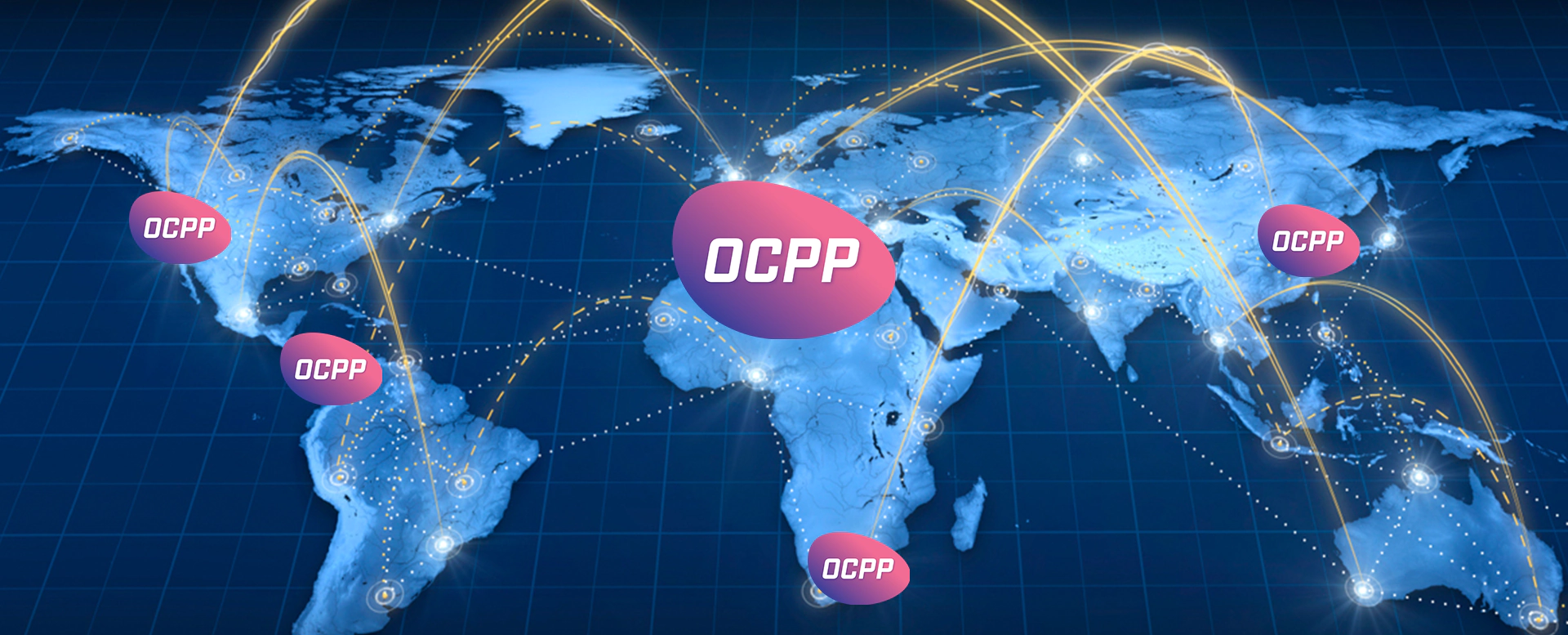
Application status of OCPP in various countries
The application of the Open Charge Point Protocol (OCPP) varies across countries and regions, reflecting differences in electric vehicle (EV) infrastructure development, regulatory environments, and market preferences. Below is an overview of its adoption globally:

▶ Global Adoption
OCPP has been implemented in 78 countries and is recognized as the de facto standard for communication between EV charging stations and central management systems (CSMS). Its open-source nature, flexibility, and ability to ensure interoperability have made it a preferred choice worldwide.
Europe
Europe leads in OCPP adoption due to strong regulatory support and a competitive EV market. The European Union emphasizes interoperability through regulations such as AFIR, making OCPP the standard for most charging infrastructure projects.
- United Kingdom: OCPP is widely used to manage diverse charging stations, supporting interoperability and infrastructure expansion.
- Germany: As Europe’s largest EV market, Germany integrates OCPP into both public and private networks to ensure compatibility across brands.
- Netherlands: The birthplace of OCPP, the Netherlands has extensively implemented the protocol, achieving one of the world’s most interconnected charging networks.
- France: France uses OCPP to unify its charging infrastructure, enabling seamless communication across operators.
- Nordic Countries (Norway, Sweden, Finland): With some of the highest EV adoption rates globally, these countries use OCPP for smart charging and vehicle-to-grid (V2G) functionalities.
- Southern Europe (Spain, Italy): These countries are increasingly adopting OCPP as they expand their EV infrastructure.
North America
OCPP adoption in North America is growing but varies significantly by region:
United States:
- California: A leader in EV adoption, California mandates OCPP compliance for publicly funded charging projects to ensure interoperability and prevent vendor lock-in.
- New York and Massachusetts: These states are gradually adopting OCPP standards as they expand their charging networks.
Federal programs like NEVI (National Electric Vehicle Infrastructure) require OCPP compliance for funding under the Infrastructure Investment and Jobs Act.
Canada: Canada is increasingly adopting OCPP to unify its charging infrastructure across provinces, ensuring compatibility and scalability.
Asia
Asia’s adoption of OCPP is growing alongside the rapid expansion of its EV markets:
- China: While China primarily uses its own standards (e.g., GB/T), some companies are adopting OCPP to meet international market demands.
- Japan: Though CHAdeMO dominates Japan’s market, manufacturers are starting to incorporate OCPP for global compatibility.
- South Korea: South Korea mandates OCPP compliance for public funding of charging stations, promoting standardization.
- India: As a burgeoning EV market, India is adopting open standards like OCPP to support its rapidly expanding charging infrastructure.
Oceania
- Australia: Australia is rapidly developing its EV market and widely uses OCPP for both public and private charging stations to ensure compatibility across brands.
- New Zealand: New Zealand employs OCPP to manage its nationwide charging network efficiently.
South America
South America is at an early stage of EV adoption but shows increasing interest in OCPP:
- Brazil: As the largest economy in South America, Brazil is beginning to adopt OCPP for future-proofing its growing EV infrastructure.
- Chile and Argentina: These countries are gradually introducing OCPP through international collaborations and pilot projects.
Africa
Adoption in Africa remains limited due to slower EV uptake but shows potential:
- South Africa: Leading the continent’s EV efforts, South Africa is exploring OCPP for its emerging charging network.
- Other African nations may integrate OCPP as international aid projects expand EV infrastructure.
Middle East
The Middle East is integrating OCPP into its modernizing transportation systems:
United Arab Emirates (UAE): Particularly in Dubai, OCPP supports smart city initiatives by enabling efficient management of the growing EV network.
Saudi Arabia: Under Vision 2030, Saudi Arabia incorporates open standards like OCPP into its modern transportation systems.
▶ Conclusion
OCPP has become a cornerstone for global EV infrastructure development due to its openness, flexibility, and focus on interoperability. Europe leads in adoption with robust regulatory frameworks. North America follows with increasing federal and state-level support. Meanwhile, Asia-Pacific countries like South Korea and India are embracing it as their markets grow. Emerging markets in South America, Africa, and the Middle East are also beginning to adopt OCPP as they build out their EV ecosystems. Through these developments, OCPP continues to play a crucial role in advancing sustainable transportation worldwide.